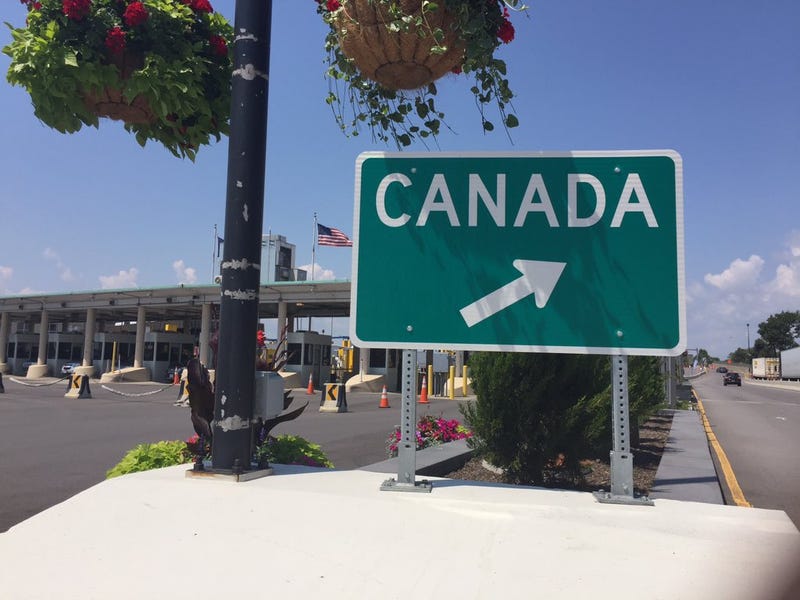
Buffalo, N.Y. (WBEN) - A new rule from the Department of Homeland Security is set to take affect at the end of the year that will require non-U.S. citizens entering the country to be photographed by U.S. Customs and Border Protection.
Rosanna Berardi, attorney with Berardi Immigration Law, says on top of photographs for all non-U.S. citizens being required, other non-Canadian nationalities may be required to produce fingerprints upon arrival into the country.
"This is part and parcel of the 'One Big, Beautiful Bill', and also from some attempted legislation back in 2021 to secure the borders and to know who is coming in-and-out of the United States," noted Berardi in an interview with WBEN.
Based on what Berardi has read and heard, she believes there is no reason to panic, as the rule will hopefully be seamless thanks to the assistance of Artificial Intelligence (AI).
"When you're driving across the border, if you're the driver right now of a vehicle, you're getting your photo taken whether you know that or not. And CBP has indicated they're going to be using a lot of AI technology, so hopefully for the land borders, it's not going to be different, other than you're getting your photo taken as you're rolling across," Berardi explained.
Meanwhile, Berardi suspects individuals will have to be inspected on their way to the U.S. when entering the country through an airport.
"I think it will be a very small obstacle, and they are working on gradually rolling it out. It's not going to be the flip of a switch," she added.
For some that may be concerned about getting your photo taken by government officials, Berardi points out that in the world we live, many people are being photographed on a regular basis. She also feels the practicality of the rule will not be too immense.
"There's always going to be the people saying, 'My privacy is violated.' Those are the individuals that don't want to apply for NEXUS because they don't want to give their photo or information to the government. But any building, any street, anywhere that you are in the world, there is a camera somewhere recording you and your actions. I don't think it'll be much different," Berardi said. "When you walk into Disney World, you give them your fingerprint and a picture. It's the world we live in. But there will be people saying, 'Oh, I'm not going to the United States because I don't like this.' There's really not anything we can do about that."
How much could a rule like this further deter Canadians and other non-U.S. citizens from entering the country, thus impacting the local economy? Berardi feels the impacts will not be too severe.
"We've seen part of this back in April when the government required Canadian snowbirds who remain in the U.S. longer than 30 days to register. Some Canadians are like, 'You know what? I don't want to tell the U.S. government where I am. I'm not coming over.' Now are we going to see a huge downturn? It's hard to tell," Berardi said. "Some people don't like it, some people feel like it's very punitive against Canadians. But this is happening globally, around the world, with lots of other countries and in other parts of the world."
Berardi adds the weak Canadian dollar is really what's keeping a lot of Canadians outside of the United States for the long-term.

